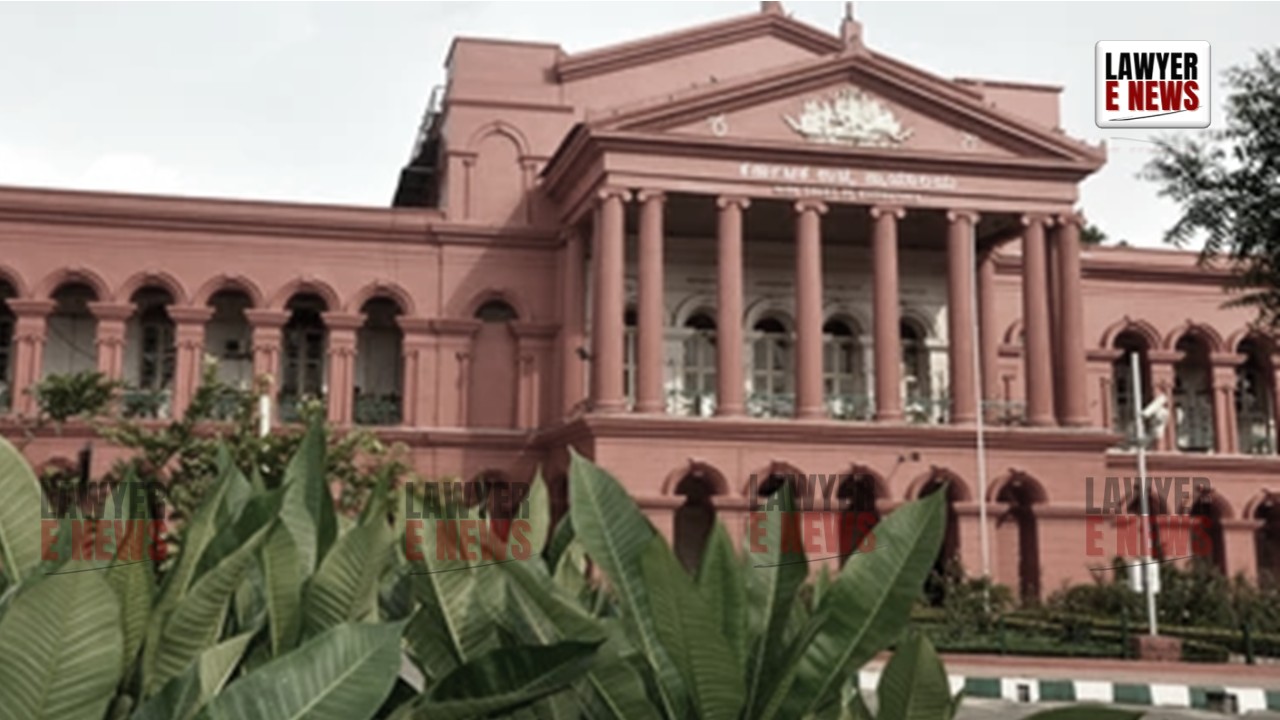-
by Admin
15 February 2026 5:01 PM



Karnataka High Court has set aside the conviction of M. Perumal, a former Chief Manager at Hindustan Aeronautics Limited (HAL), Bengaluru, in a bribery case prosecuted by the Central Bureau of Investigation (CBI), Anti-Corruption Bureau (ACB), Bangalore. The court ruled that the prosecution failed to prove the essential elements of demand and acceptance of illegal gratification, which are prerequisites for a conviction under the Prevention of Corruption Act, 1988.
Justice V. Srishananda, while allowing the appeal, emphasized: "The prosecution must prove both demand and acceptance of illegal gratification beyond reasonable doubt. Mere recovery of tainted money, without clear evidence of a prior demand, is insufficient to sustain a conviction under the Prevention of Corruption Act."
The case arose from a complaint filed against M. Perumal, who was serving as Chief Manager (Plant and Maintenance), Overhaul Division, HAL. The complainant, S. Girish Kumar, alleged that Perumal had demanded a bribe of ₹10,000 for processing a pending bill related to painting work at HAL. Unwilling to pay the bribe, Kumar approached the CBI, which organized a trap operation and allegedly caught Perumal accepting the tainted currency.
A Special CBI Court convicted Perumal on April 20, 2011, under Section 7 and Section 13(1)(d) read with Section 13(2) of the Prevention of Corruption Act, 1988, and sentenced him to two years of rigorous imprisonment under Section 7 and one year under Section 13(1)(d) r/w Section 13(2), along with fines totaling ₹15,000. Perumal appealed to the Karnataka High Court, asserting that the case was fabricated and that the complainant had falsely implicated him due to personal motives.
Demand and Acceptance Must Be Proven Beyond Reasonable Doubt
The court reaffirmed that for an offence under Section 7 and Section 13(1)(d) r/w Section 13(2) of the Prevention of Corruption Act, the prosecution must establish both demand and acceptance of the bribe. The judgment relied on Supreme Court precedents, including:
P. Satyanarayana Murthy v. State of Andhra Pradesh, (2015) 10 SCC 152 – which held that mere recovery of tainted money without proof of demand is not sufficient.
Krishan Chander v. State of Delhi, (2016) 3 SCC 108 – which reaffirmed that demand for a bribe is a sine qua non for conviction under the Prevention of Corruption Act.
Shadow Witness Did Not Hear Any Demand
The shadow witness (PW-2), who was supposed to accompany the complainant and observe the demand, admitted that he stood 200 feet away and did not hear any conversation between the complainant and the accused. The court noted that in the absence of an independent witness corroborating the demand, the complainant’s sole testimony was insufficient.
Accused Had Already Processed 75% of the Bill Before the Alleged Demand
The court observed that Perumal had already processed 75% of the complainant’s bill on December 28, 2009, two days before the alleged demand for a bribe on December 30, 2009. The prosecution could not explain why Perumal would demand a bribe after he had already approved payment.
"When an official act has already been performed, the question of demanding a bribe for the same does not arise. The prosecution has failed to establish any pending official favor that the accused could have granted."
The Defence of False Implication Was Plausible
The defense argued that the complainant was the son of a union leader and had a motive to falsely implicate the accused. The court noted that the complainant had never accused Perumal of demanding a bribe for any of his previous 20 work orders, nor was there evidence that Perumal had sought bribes from other contractors. The court found this defense plausible.
Colour Test Turning Positive Not Conclusive Proof of Bribe
Although phenolphthalein test confirmed that Perumal had handled the tainted currency, the court held that mere recovery of the money is not sufficient without clear proof of a prior demand. The accused’s explanation that the money was forcibly thrust into his pocket was not effectively disproven by the prosecution.
Conviction Set Aside, Accused Acquitted
The Karnataka High Court concluded that the prosecution failed to prove demand and acceptance of the bribe beyond reasonable doubt. Accordingly, the conviction was set aside, and Perumal was acquitted of all charges.
"If two views are possible, the view favoring the accused must be preferred. The prosecution must prove its case beyond reasonable doubt, and mere suspicion cannot replace legal proof."
Date of Judgment: January 30, 2025
